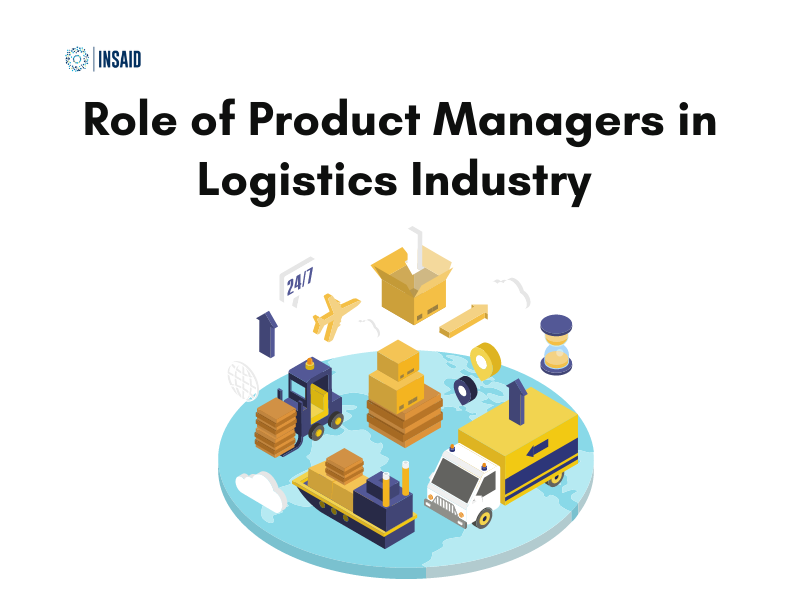A product lifecycle doesn’t end with development. However, it completes when the product successfully reaches its customers. This is where logistics come in. The logistics industry is responsible for bulk to last-mile delivery of products to its users.
The process of delivering a product is not as simple as it looks. With hundreds of thousands of products being packaged, handled, recorded, transported, and delivered every day, logistic companies need utmost efficiency.
While the adoption of technology has helped re-imagine the logistics industry and introduced automation to manual processes. The industry has turned to efficient Product Managers to streamline these operations and processes.
Product Managers are responsible for ensuring that user needs and requirements are met. This includes both the customer for whom the product is being delivered and the client who placed a delivery order with the logistics company.
Let’s discuss in detail the role of Product Managers in Logistics.
 Pin
PinHow Product Managers are helping re-invent logistics industry in 2022
1. Automation leading the way
In the last few years, automation has made the biggest impact on the logistics industry. Companies are actively moving towards automating cumbersome processes and bringing efficiency. These trends are expected to continue in 2022 and beyond.
However, bringing in automation doesn’t guarantee work efficiency. For that companies need to understand what do shippers want, what users want, employees want, and help address their pain points.
Product Managers here are responsible for collecting feedback from stakeholders and implementing the feedback to make the best of automation and streamline these large pools of processes in logistics.
Also read: Top 4 Digital Product Management Trends
2. Digital Transformations in 2022
Like any other company, logistic brands too have a digital presence now. Companies run digital campaigns to form a brand image and market their product offerings. And who understands a product better than a Product Manager?
Product Managers are at the core of digital transformations and building brand images. They conduct market research, competition analysis, and work closely with the product and marketing teams to market their product the right way.
3. Last-mile delivery changing logistics
Last-mile delivery is no longer an alien concept. Amazon, Delhivery, FedEx, Ekart, and more have changed our lives with their last-mile delivery services. Today we are looking at 10-minute delivery services!
With customer expectations increasing each passing day, logistic brands have to reinvent their services and products to keep up with the competition.
Product Managers constantly keep their eyes on market needs
- They work closely with engineering teams to upgrade and include new tech features such as customer service, record-keeping, delivery updates, and more. Thus, making the lives of employees easier and jobs more efficient.
- They work with product teams to enhance and improve delivery services based on customer feedback, such as switching to paper-based packaging, fast deliveries, inter-border deliveries, handling of delicate materials, and more.
There are plenty more trends that are transforming the way logistics works! At the center of all these advancements lie Product Managers who act as a bridge between teams and streamline operations.
If you are someone looking to build a career as a Product Manager, check out our top Product Management courses here.






